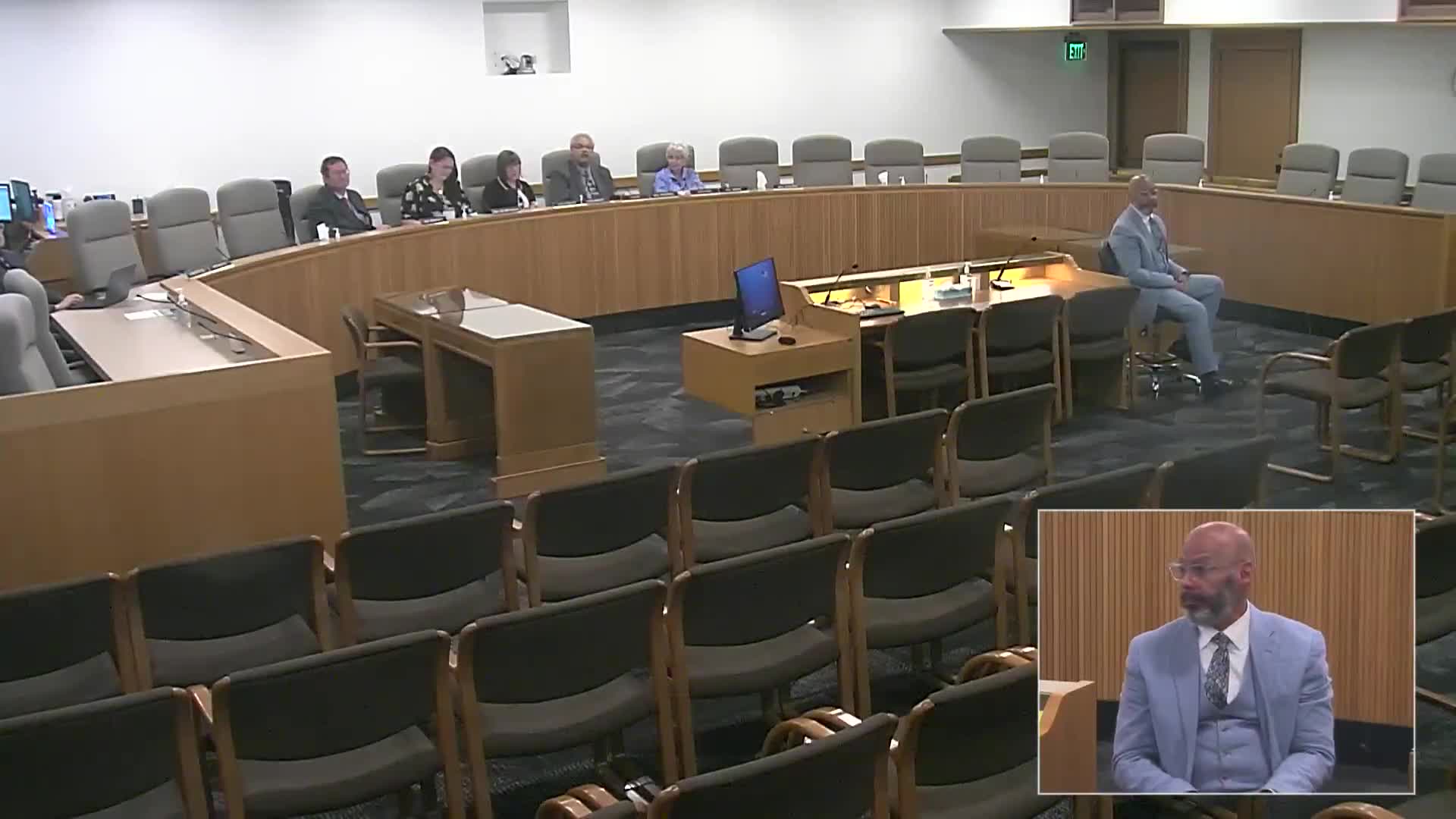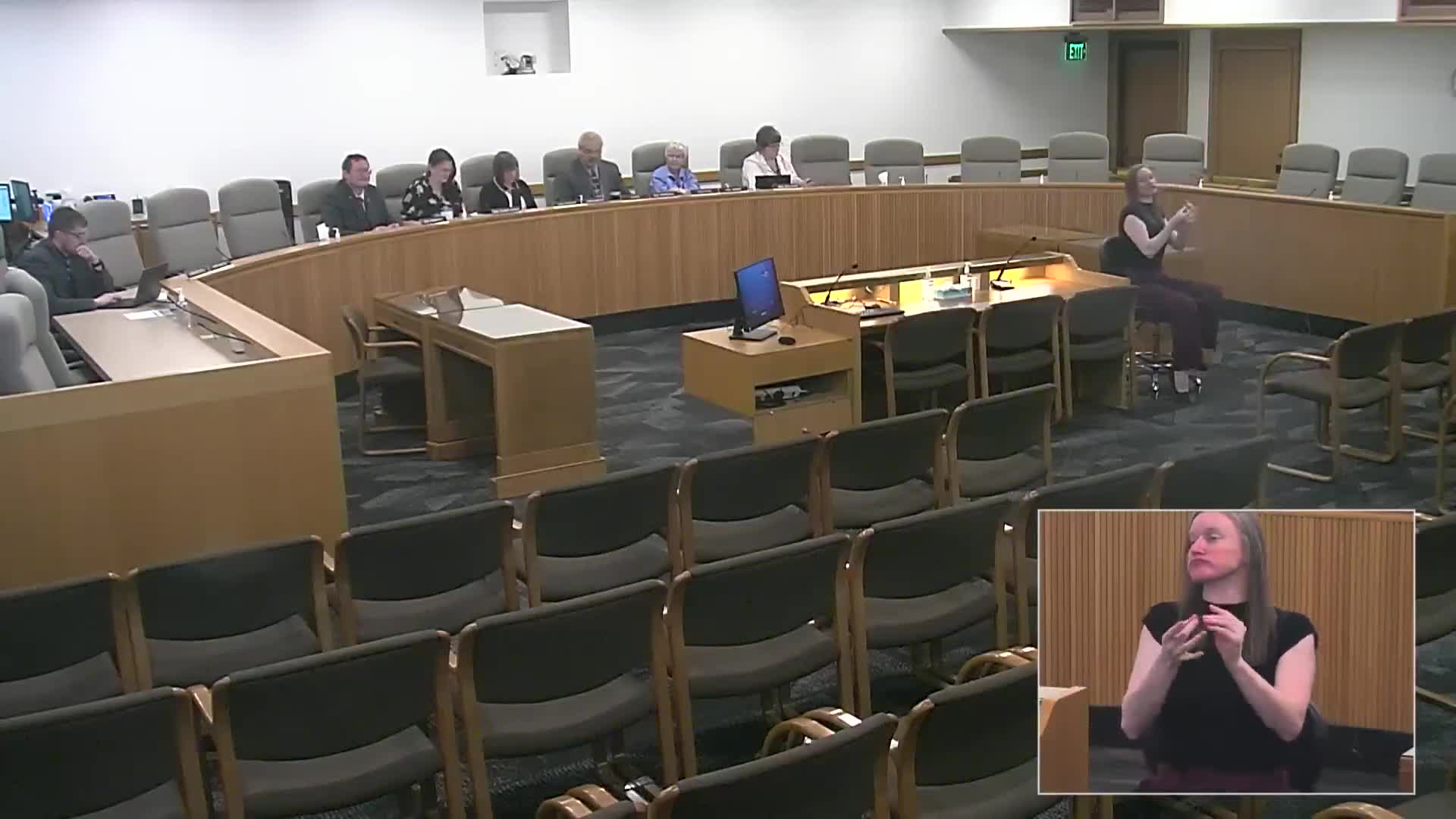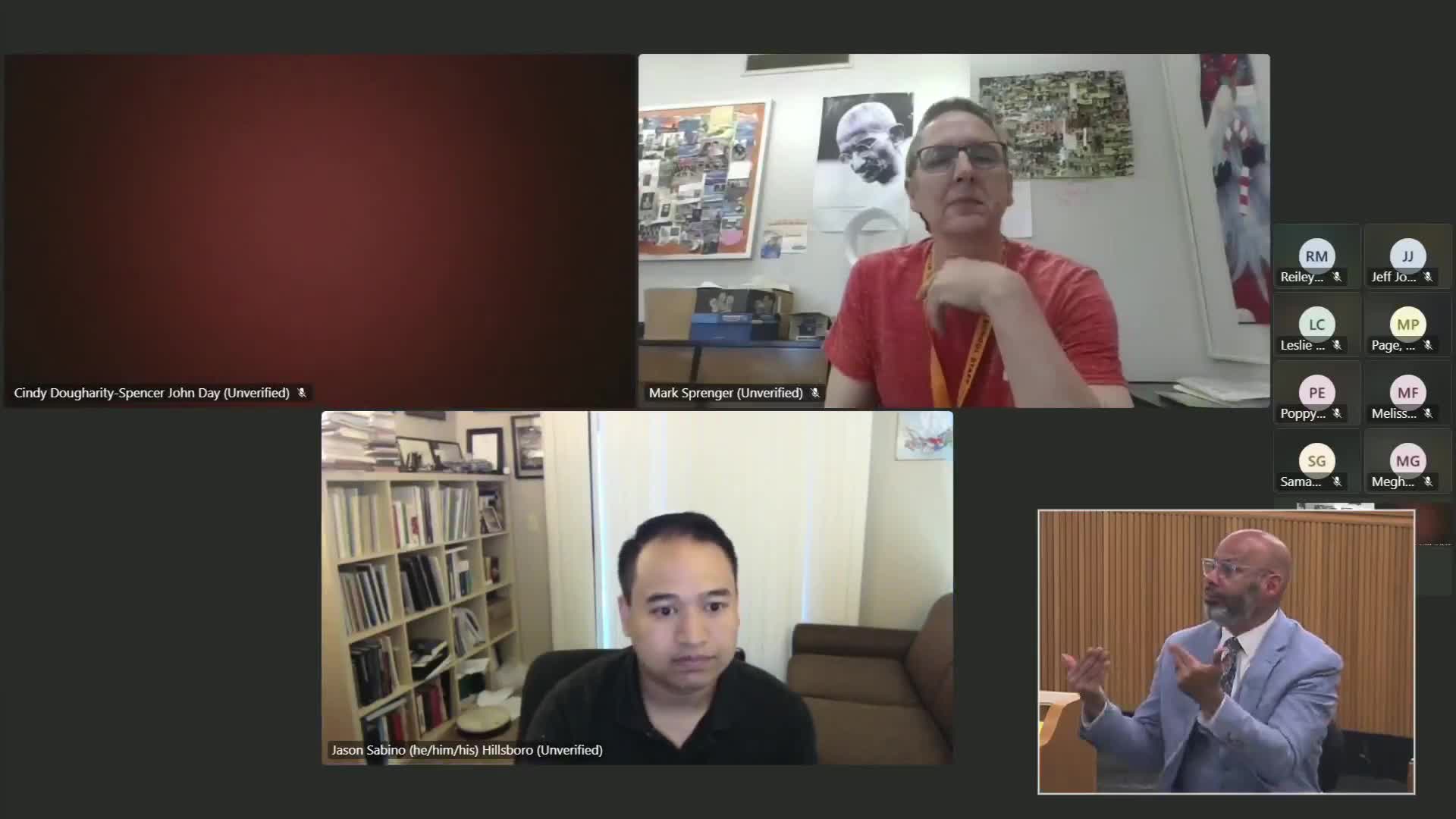Article not found
This article is no longer available. But don't worry—we've gathered other articles that discuss the same topic.

Online charter-school teacher urges removal of in-person grant barriers and enrollment caps that limit remote students

Music and arts teachers warn cuts and scheduling barriers are reducing student access to arts education

Elementary teachers urge investment in early literacy and warn third-grade writing test may be developmentally inappropriate

Teachers tell Senate committee emergency licensing, multiple jobs and class-size pressure are straining classrooms

